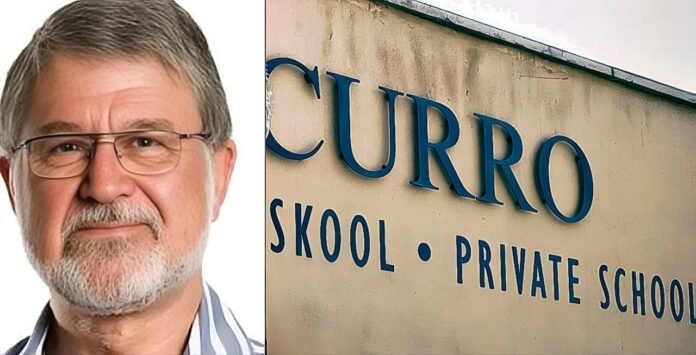A bold philanthropic move
South Africa woke up to a new education reality this week: Curro Holdings, the country’s largest private school network, is being acquired in a staggering R7.2 billion deal by the Jannie Mouton Foundation, a Public Benefit Organisation (PBO).
Once finalised, Curro will be delisted from the JSE and reborn as a non-profit company (NPC). For billionaire Jannie Mouton—founder of Capitec, PSG Group, and Curro itself—this isn’t just business. It’s a legacy move, one that shifts education from profit to purpose.
“This is quite possibly the largest philanthropic contribution South Africa has ever seen,” Mouton said.
“It opens the door for thousands more children to attend Curro schools through bursaries, broadening access to excellent education.”
From profit to purpose
At present, Curro operates 189 schools across 81 campuses, serving around 71,749 learners. Traditionally a profit-driven business, it will now operate under an entirely different ethos:
- No shareholders.
- No dividends.
- All surpluses reinvested directly into expanding and improving schools.
This could mean new schools in underserved rural areas, state-of-the-art facilities, and at least 12,000 full bursaries for underprivileged learners.
Already, Curro has carved a reputation for academic excellence, with its learners featuring in South Africa’s top-performing private schools. Now, access to that excellence could be dramatically broadened.
Why now?
Curro’s buyout comes against a backdrop of economic fragility:
- South Africa is grappling with high inflation and family budget strain.
- Private schools are under pressure as parents weigh affordability.
- Proposed VAT reforms could saddle schools with heavy liabilities, forcing many to rethink sustainability.
In this climate, the Mouton Foundation’s intervention is seen as both altruistic and strategic.
“After the transaction, there will be no shareholders – all profits will be reinvested into expanding access and improving educational quality,” said Jan Mouton, deputy chair of the foundation.
A sector in transition
Despite its dominant position, Curro hasn’t been immune to challenges:
- Learner numbers declined 1.4% year-on-year in 2025, to 71,749.
- Earnings per share dropped 36% due to impairments on land for future development.
- Families are under pressure, with annual fee increases between 6% and 10%.
Still, Curro’s resilience is evident—revenues rose 4.7% to R2.7 billion in the first half of 2025.
CEO Cobus Loubser says the group’s mission remains clear:
“Delivering quality private education is our core mission. We are balancing educational excellence with financial sustainability, despite a challenging operating environment.”
Public reaction: Hero or strategist?
Social media reaction has been swift and divided:
- Supporters call Mouton a hero, planting “a forest for generations to come.” See more reactions.
- Others argue this is less about charity and more about control, securing his legacy through a powerful educational empire. Read thread.
Either way, the sheer scale of the deal—and its promise to reshape schooling—cannot be denied.
ALSO READ
- Africa’s STEM Star: SA Teacher Wins Robotics Innovation Award
- Best Student Loans in SA 2025: Top 6 Providers Compared
Key takeaways
- Deal value: R7.2bn, offering a 60% premium to shareholders.
- Scale: 189 schools, ~71,700 learners.
- Future model: Non-profit PBO, no shareholders, reinvested surpluses.
- Access: 12,000+ bursaries pledged, expansion into underserved areas.
- Context: Families under pressure, VAT reforms looming, learner numbers down.
- Impact: Shift from shareholder-driven profits to purpose-driven education.
Future at stake
In a country where access to quality education often depends on privilege, Jannie Mouton’s R7.2bn Curro revolution is more than a business transaction—it’s a powerful statement that the future of South Africa lies not in profit margins, but in classrooms filled with possibilities.

